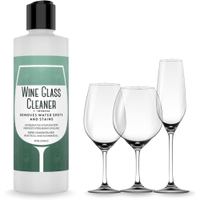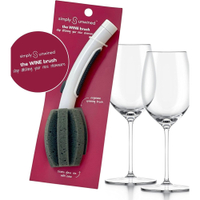How to clean wine glasses properly – expert tips to maintain their clarity and prevent damage
Expert tips to clean wine glasses after every use in four simple steps
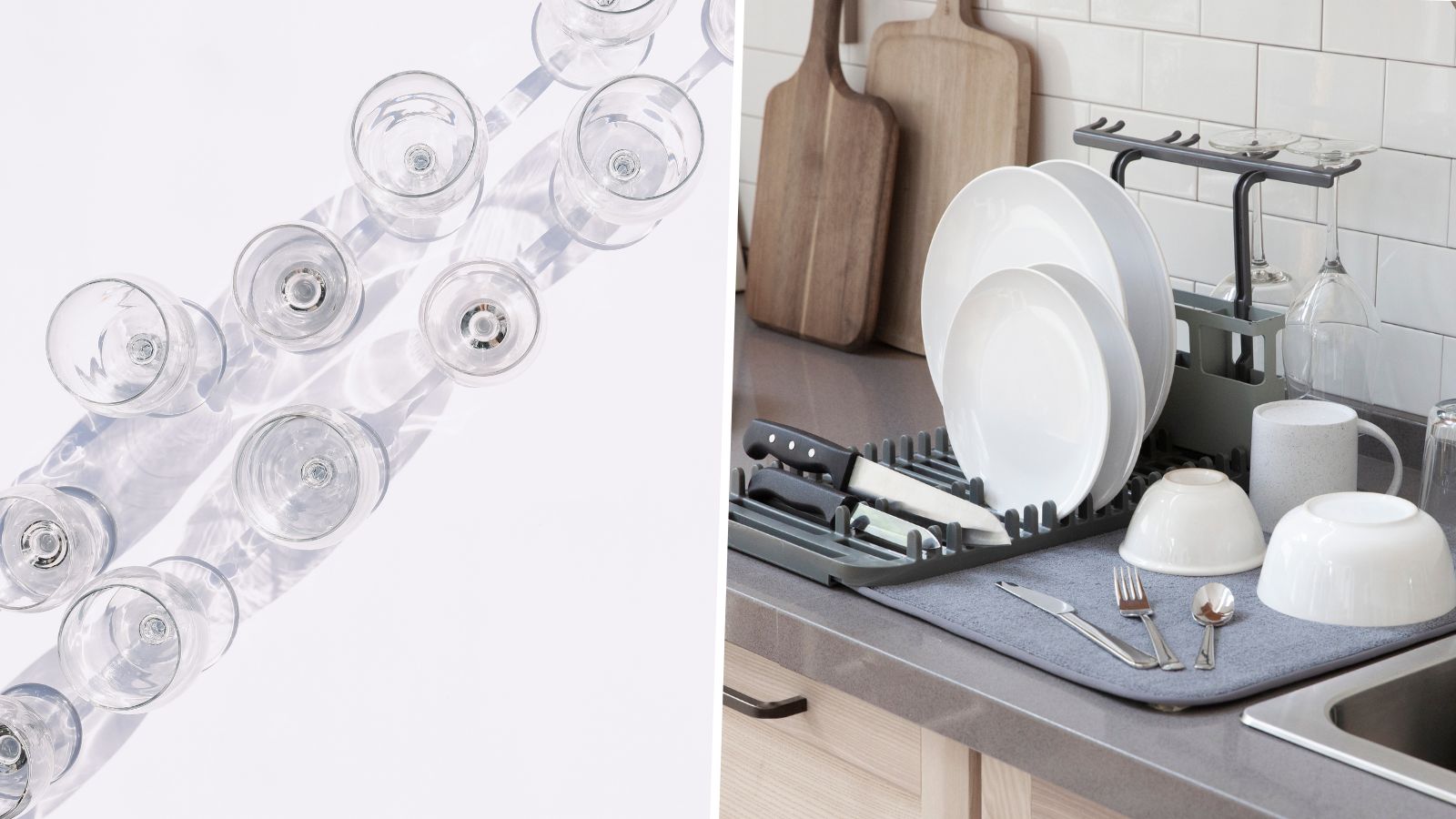

Whether you're planning on hosting a dinner party and don't want cloudy glasses undermining your table-scaping aesthetics or simply aiming to preserve your most delicate stemware, knowing how to clean wine glasses properly is key.
When washing your wine glasses, they can't just be tossed in with the rest of your washing up. Using the wrong cleaning techniques might leave you wondering how to get rid of hard water stains on the glass or why your wine doesn't taste quite right.
We asked experts for their best cleaning tips. Below are the four simple steps to ensure wine glasses remain spotless, clear, and free from damage or wear.
How to clean wine glasses properly
'To make cleaning your glasses easier and more efficient, it's a good idea to separate them by type first – for example, wine glasses, tumblers, and delicate glasses,' recommends Jade Piper, Operations Manager at BetterCleans. 'Then, you can wash them in batches for a really thorough clean.'
Wine glasses often have unique shapes and different care and sensitivity specifications for cleaning. By categorizing glasses based on their style and delicacy, you can ensure they are cleaned adequately without being damaged.
1. Hand wash glasses
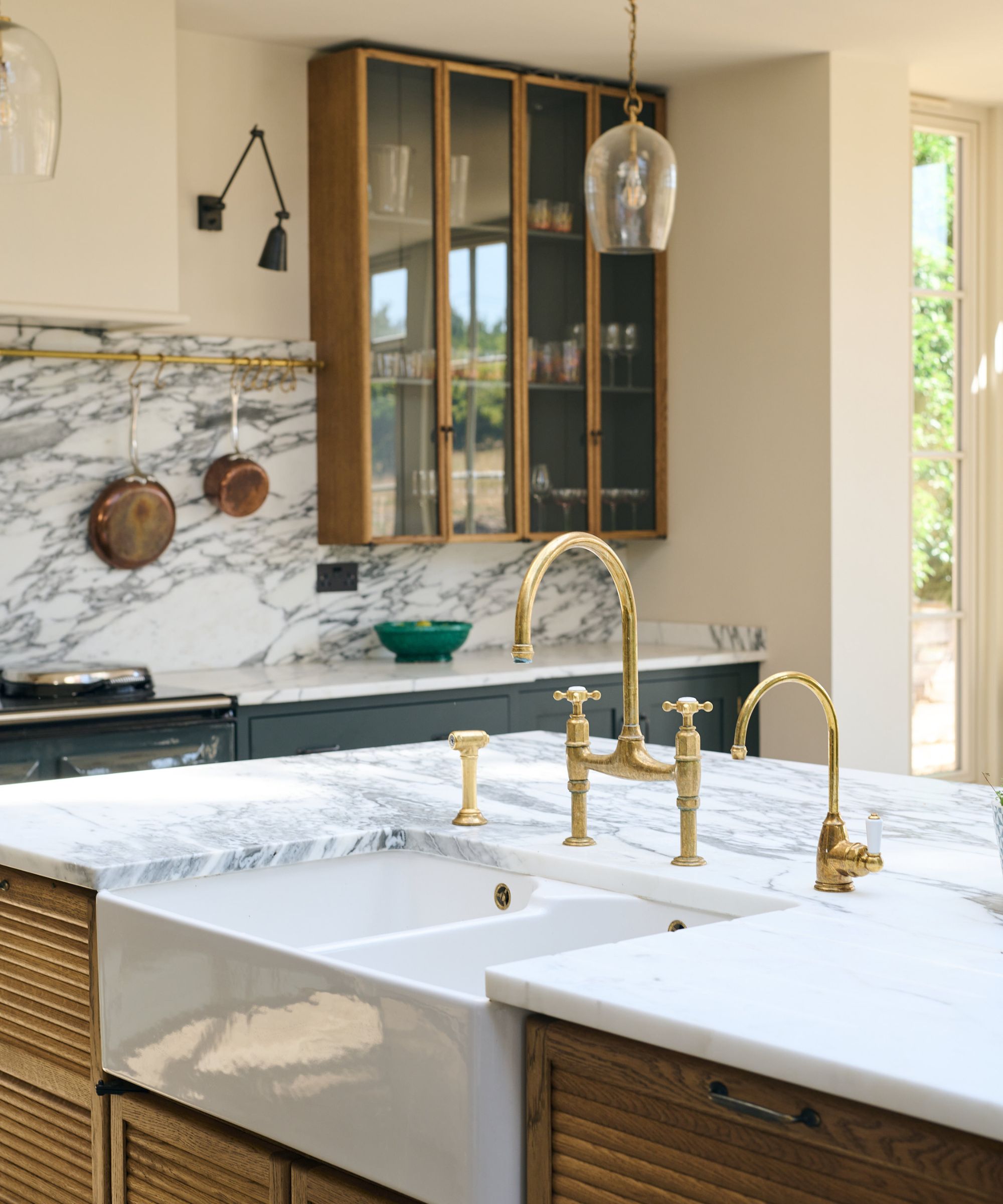
Handwashing is the gentlest method that prevents etching or cloudiness on the glass. Here's how the experts recommend doing it:
- Use warm water and a small amount of mild, unscented dish soap to clean glasses. It's important to only use warm water, as the crystal will shatter under hot water and cold water won’t do the trick. The trick is to avoid using too much soap, as it can leave a residue that causes cloudiness or a film on the glass and might affect the taste of your wine. You should also avoid harsh cleaners as these can damage the glass.
- Use a soft sponge or cloth to clean the inside and outside of the glass carefully. For hard-to-reach areas, like the bottom of a tall wine glass, use a cleaning utensil with a handle to avoid cracking the rim. 'If you've got some narrow-necked glasses, a bottle brush can help you reach those tricky spots easily,' recommends Jade Piper.
- If the soapy water starts to get cloudy or too dirty, refresh it. That way, you'll avoid any smudges or streaks on your glasses.
- Pay extra attention to areas like the rims and bases, where buildup can happen.
- Once you've cleaned the glasses, rinse them well to ensure all the detergent is removed, as it can impact the overall taste of the wine.
IMPRESA Concentrated Wine Glass Cleaning Liquid | $9.99 from Amazon
This unscented cleaner is formulated to accelerate evaporation, which helps to prevent water spots.
Simply Unwined The WINE Brush | $13.99 from Amazon
This wine glass cleaner has a soap dispenser can can allow you to reach within the glass without risking cracking the rim.
2. Hand dry glasses
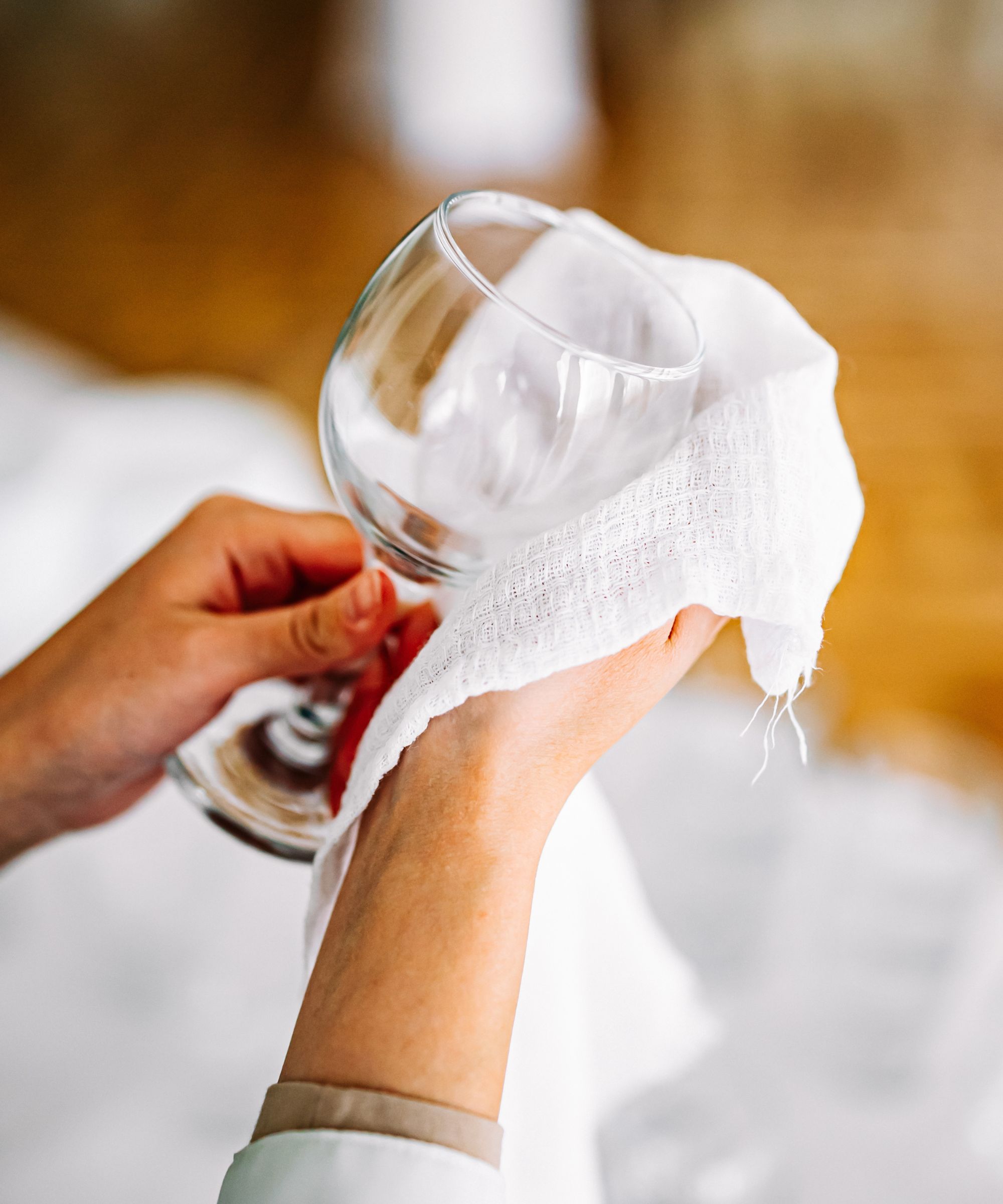
While air-drying glasses may be easy and can minimize contact and potential contamination, this often leaves ugly water stains on them that make your glasses look unclean. Taking a minute to hand dry each glass is worth the small effort to keep your glasses looking beautiful and prevent streaks.
To dry glasses, we usually recommend using a lint-free microfiber cloth. However, Patrick Scully, National Director of Food, Beverage & Culinary Experience at Esplanade by Taylor Morrison, recommends using a coffee filter to polish glasses. 'This is a hack we use in restaurants and hotels because coffee filters won’t leave any lint and absorb any leftover water. Even lint-free microfiber rags can leave fabric particles.'
Patrick shares his top tips for hand drying glasses below:
- Hold the glass by the stem vs the bowl so you don’t smudge the glass when wiping the exterior.
- If there is no stem – or it’s time to dry the inside – have a microfiber towel in the hand that is holding the bowl/glass if it’s not large enough to cover your hand.
- After drying, ensure there’s no residue by holding the glasses up to a light.
3. Steam glasses
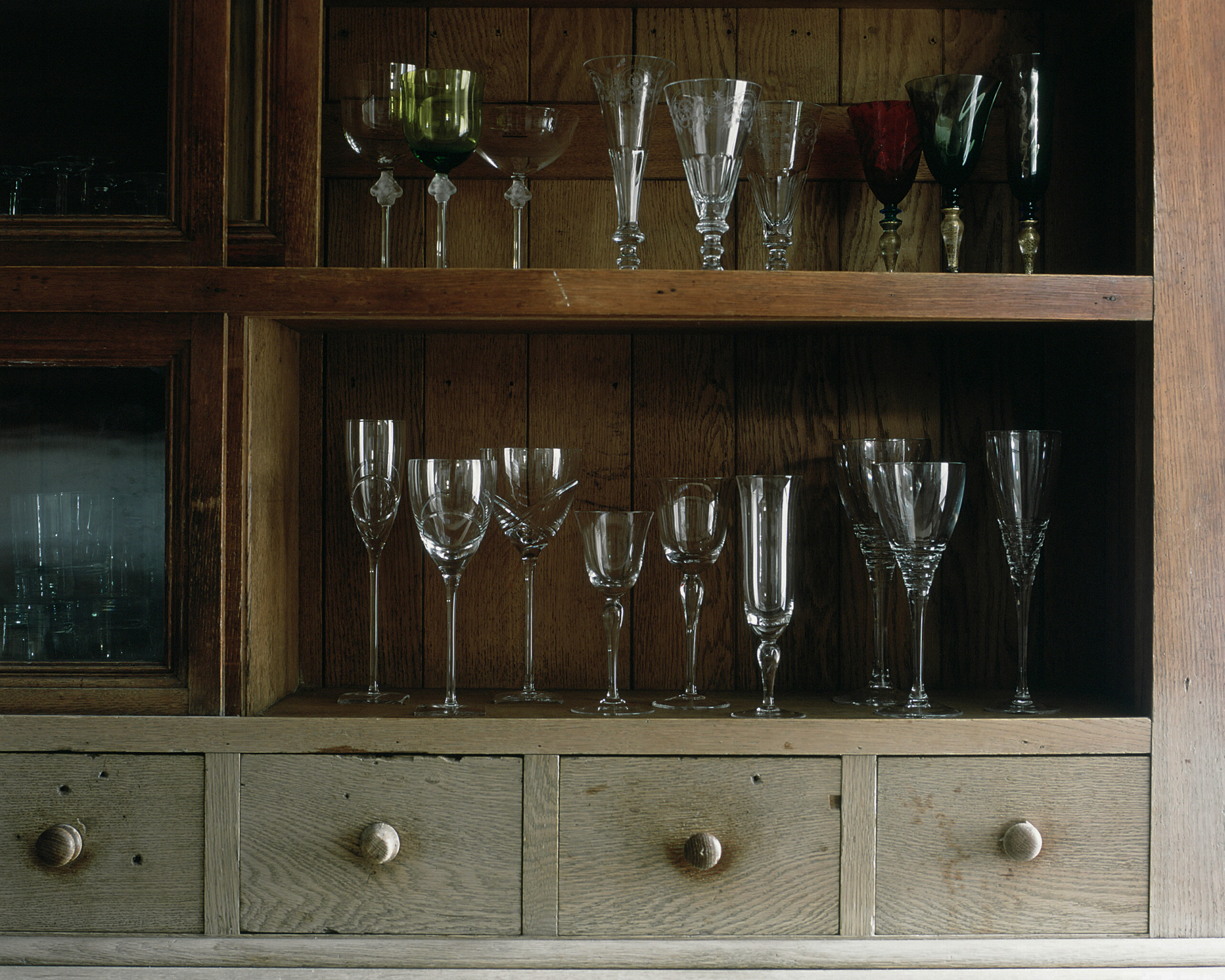
Steam can be used to remove water spots and streaks from wine glasses. This is especially ideal when your glasses have accumulated dust debris to loosen them without warranting harsh scrubbing.
'After your glasses are dry, place them over a bowl of hot water and allow the steam to enter the glass and kiss the outside,' recommends Patrick Scully. 'Just be careful not to burn yourself.' Then, give them a quick polish.
Now, your wine glasses should be pristinely clean and look as much, too. The only other thing you can do to keep wine glasses clean, aside from following these steps after using them, is to occasionally give them a deeper clean with vinegar.
4. Do a vinegar deep clean
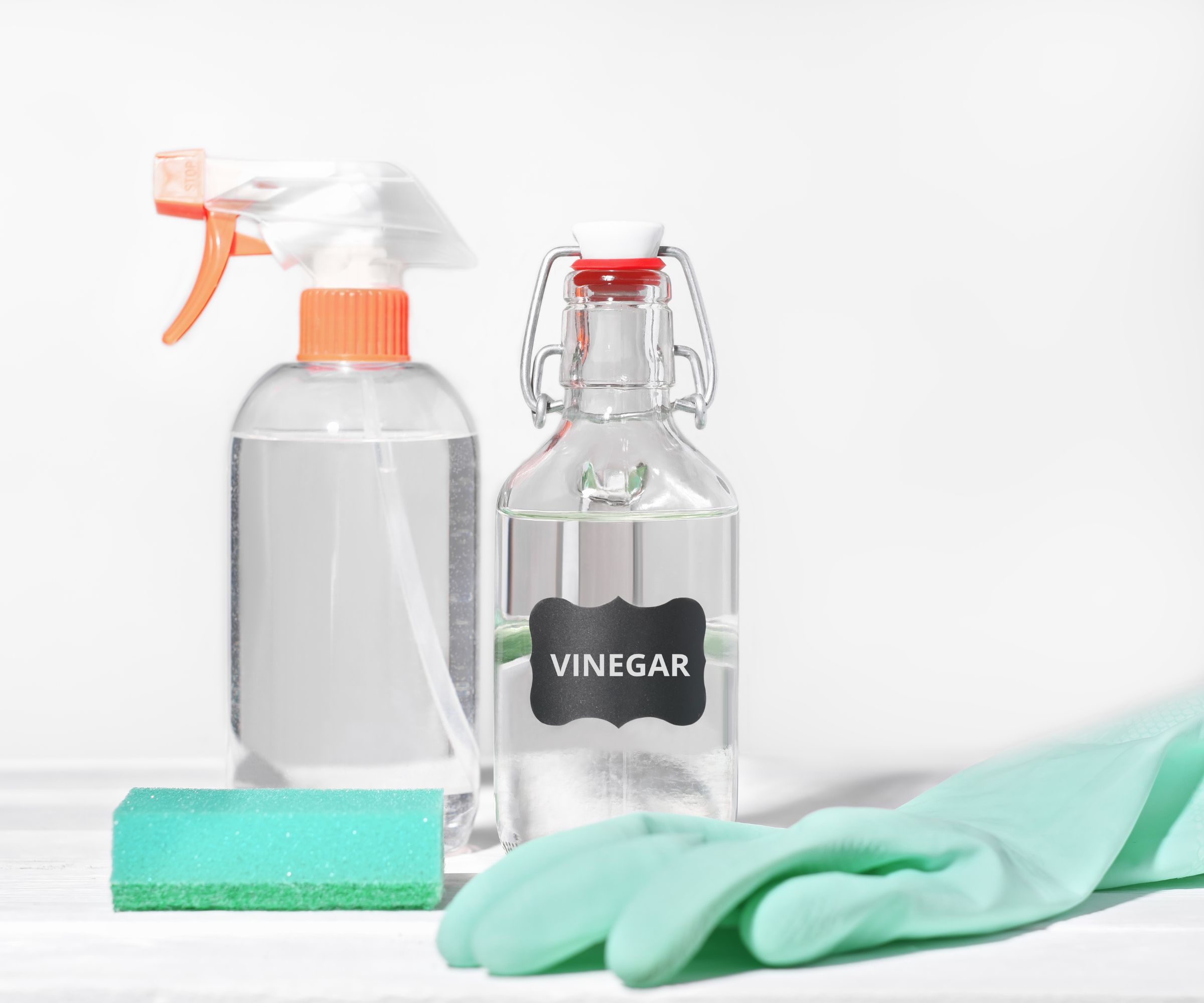
'A yearly vinegar deep clean is also a good idea, as it breaks down any stubborn stains or deposits that may accumulate over time and sour the flavor,' says Jade Piper.
Cleaning with vinegar is an excellent way to maintain the clarity of wine glasses, as its acidic nature means it will easily break down grease and kill bacteria. Additionally, it will remove any lingering odors or residues that can affect the flavor of your wine.
However, don't use vinegar to clean wine glasses too regularly, as it can erode the glass and compromise its integrity, leading to cloudiness or scratches that can impact the wine's taste and aroma.
Here's how to deep clean wine glasses with vinegar:
- Fill a sink or basin with a mixture of equal parts white vinegar and warm water.
- Rinse the glasses in warm water to remove debris, then submerge them in the vinegar solution and leave them to soak for about 10-15 minutes.
- You can also use a soft sponge or brush to remove any remaining residue.
- Then rinse them thoroughly to remove any vinegar and dry them.
FAQs
Can you clean wine glasses in the dishwasher?
It's important to bear in mind that while some manufacturers will label glasses "dishwasher safe" you should tread lightly. Not all dishwashers and glasses are created equal and broken glass is never fun. So, while cleaning wine glasses in a dishwasher can be safe, you must consider:
The quality of the glasses: Delicate glasses will be more prone to breakage or clouding in the dishwasher.
The detergent type: Only use mild detergent in dishwashers and avoid harsh chemicals, as these can affect the glass's clarity or integrity over time.
Temperature: Opt for a gentle cycle with lower temperatures to minimize the risk of thermal shock causing the glasses to crack or break.
Placement: Avoid overcrowding the dishwasher, ensuring there is enough space between each glass to stop glassware from scratching. If you’re going to wash them in the dishwasher, stack them in the top rack, and only do so on a light load. This protects the delicate glass and avoids mixing aromas between wines.
Ultimately, properly cleaning wine glasses is about more than just hygiene and aesthetics, it's essential to preserve the flavor of each wine. 'You need to clean your wine glasses after each use, especially when switching between different wines. This gets rid of any lingering residue that can change the flavor,' explains Patrick Scully, National Director of Food, Beverage & Culinary Experience at Esplanade by Taylor Morrison. 'Different shapes, sizes, or materials can enhance or diminish the subtle flavors and aromas. Like how to store wine in your kitchen, quality glasses deserve quality care so true lovers of wine can fully savor each varietal.'
Sign up to the Homes & Gardens newsletter
Design expertise in your inbox – from inspiring decorating ideas and beautiful celebrity homes to practical gardening advice and shopping round-ups.

Lola Houlton is a news writer for Homes & Gardens. She has been writing content for Future PLC for the past six years, in particular Homes & Gardens, Real Homes and GardeningEtc. She writes on a broad range of subjects, including practical household advice, recipe articles, and product reviews, working closely with experts in their fields to cover everything from heating to home organization through to house plants. Lola is a graduate, who completed her degree in Psychology at the University of Sussex. She has also spent some time working at the BBC.
-
 Kelly Ripa and Mark Consuelos's dining room shelves combine unexpected elements for the ultimate storage solution – it's multi-functional and replicable
Kelly Ripa and Mark Consuelos's dining room shelves combine unexpected elements for the ultimate storage solution – it's multi-functional and replicableGreen shelves in Kelly Ripa and Mark Consuelos' dining room cleverly combine storage to accomplish separate purposes in a pretty way
By Sophie Edwards Published
-
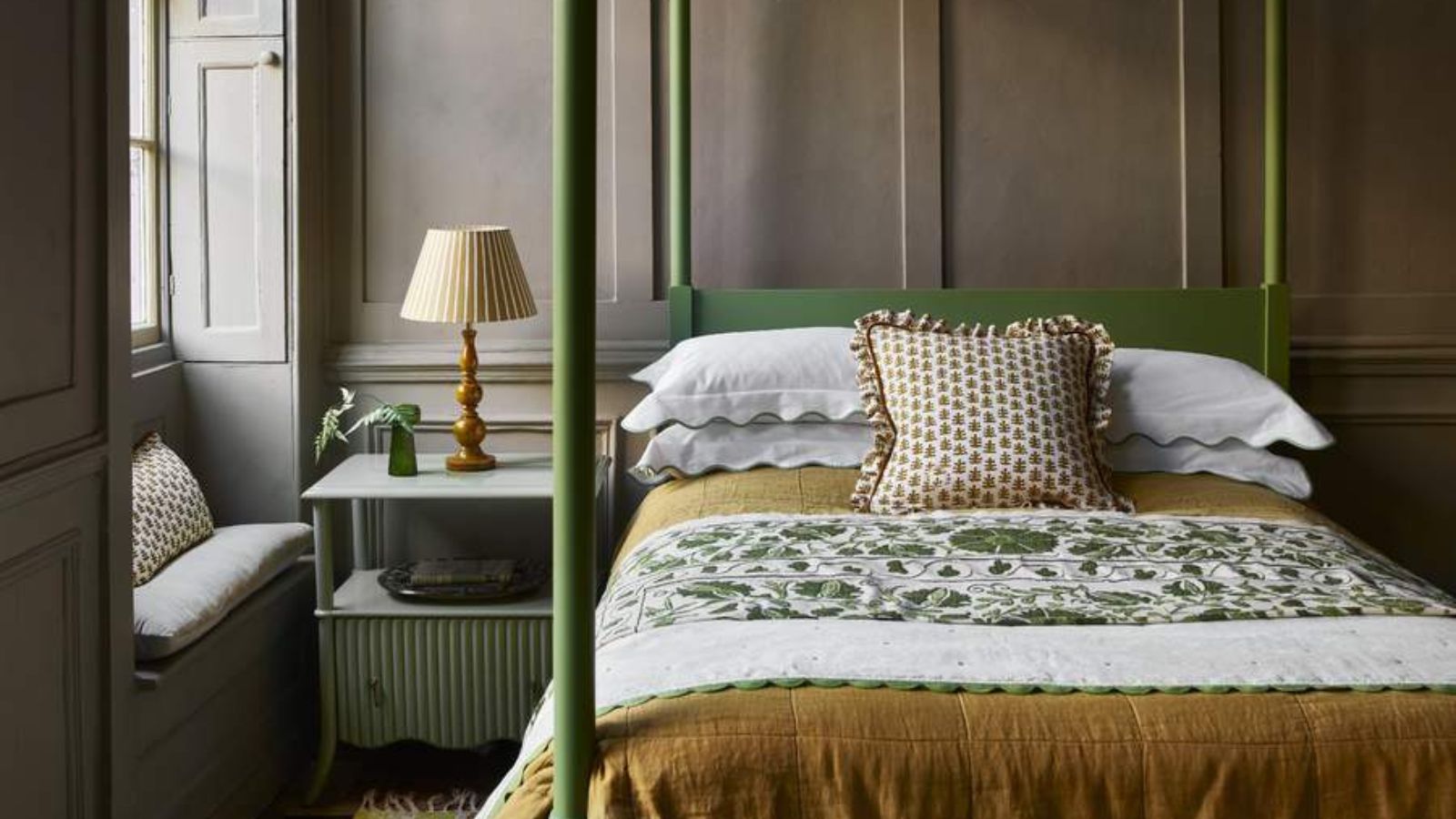 I'm a Sleep Editor – these are the 7 mattress features I think are gimmicks and not worth the spend
I'm a Sleep Editor – these are the 7 mattress features I think are gimmicks and not worth the spendIn my search to find the world's best mattress, I've come across some duds − learn from my mistakes and avoid these mattress gimmicks
By Emilia Hitching Published
